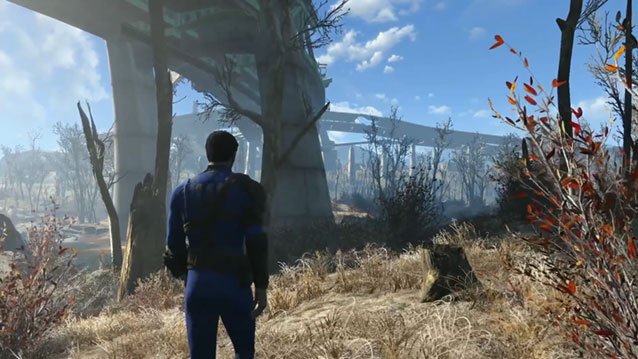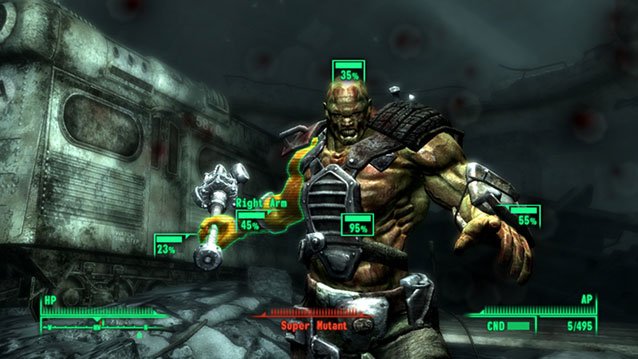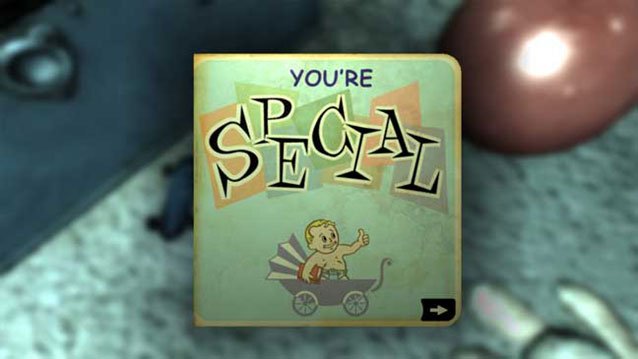


It’s been 18 years since the first Fallout game was published, but with Fallout 4 on the horizon, now is a good a time as any to indulge in one of the most celebrated video game series of all time. If this is your first time playing a Fallout game, you may have some questions or need some pointers when it comes to what makes the series different from others, and so, we’ve put together some hints and tips for the first time Fallout player.

Probably not. The deeper narrative framework of Fallout is usually explained in way or another during the game. The beauty of games that have a deep lore is that it’s still fun to discover them retroactively, as I found when I played Fallout 1 and 2 after playing Fallout 3. It’s also fun in chronological order, as was my experience with Fallout: New Vegas. Just be aware that Fallout and Fallout 2 are very different from Fallout 3 and beyond. Once Bethesda purchased the rights to the IP from Interplay, they switched the game from turn based isometric into full 3D RPG-FPS. This makes for a hugely different experience between the two generations of Fallout games. Be prepared for that if you choose to play the series from the beginning.
If you do wish to learn the entire backstory behind Fallout, we recommend this video, Fallout In 30 Minutes.

If you’ve never played a Fallout game before, you may be unaware that the newer generation, Fallout 3 and New Vegas, can be played in either third or first person. My first file in Fallout 3 was played entirely in third person, but I switched to first person in later play-throughs. Playing in first person is better for precision in combat, but third person allows you to see more of your surroundings and can be useful in a melee situation. Third person is also useful when you’re hunting for items in a room, as the broader perspective allows you to spot items much easier. My suggestion is to use first person in combat, third person when searching for items or using melee weapons like the baseball bat.
Fallout uses a system that will give you constant save points to restart from should something go wrong. This is useful because many missions have multiple paths to completion and you may want to explore each one before making a final decision. Your game will save when you enter a new area or fast travel (Autosave). You can also use Quick Save and a regular Manual Save. Use them as often as you need. There is no shame in going back to an older save file to ensure an enemy encounter or NPC dialogue tree goes exactly the way you want! Heck, one time before negotiating a hostage situation in New Vegas, I hit up a bar so I could drink some Vodka, giving me the Charisma necessary to pass a key speech check. Think outside the box!

V.A.T.S. is a unique targeting system that dates back to Fallout 1 and 2, retaining some of the turn-based aspects of the original games. In enemy encounters, you will be able to pause the combat and plan your attacks. The number of attacks you can make is determined by your character’s AP, or Action Points. Each part of the enemy’s body can be highlighted and targeted, and each will be labeled with a percentage that tells you how likely you are to successfully make an attack. You can use all your attacks on one enemy, or spread them around to others in one single VATS session. The closer you are, the higher the percentages will be, though various Perks and Attributes can help.
Once you run out of AP, you have run out of planned attacks to make and will return to regular combat. AP can be boosted with one of the game’s performance enhancing drugs, Jet, or the Action Boy/Action Girl perk.

Fallout characters have become more and more customizable over the years. Not only can you specify basic aesthetic characteristics like hair style and skin color, but you also get to strategically invest in multiple areas of expertise. The S.P.E.C.I.A.L. system acts as your character stats, much like the stat system of Dungeons and Dragons. At the start of the game you will be given a certain number of points to invest in various Attributes like Strength, Perception, Endurance, Charisma, Intelligence, Agility, and Luck. Each will play a part in your ability to perform certain tasks, and how well you perform them. They also determine what Perks you can choose from when you level up. Certain dialogue trees will also have new options available to you depending on your stats. A person with high Intelligence, for example, may have more effective dialogue options when talking with a scientist, or a character with high Charisma may be able to charm their way into learning vital information.
Perks are a special performance bonus that you can apply to your character each time you level up. The effects are permanent, though many require certain conditions (for example, a Perk that allows you boosted Perception at night). Previously each Perk would notify you of the SPECIAL requirements needed to unlock them, but now they are categorized by what SPECIAL trait they are related to, as illustrated by this handy chart. This will help you hone the focus of your character build. Like your S.P.E.C.I.A.L. stats, Perks will sometimes open up new options in a dialogue tree when your character is talking to NPCs. In Fallout: New Vegas, for example, Cherchez La Femme would allow a female Courier special dialogue options with other lesbians.
Fallout 4 will be heavy on the sci-fi tech, so my suggestion is to invest your character’s points into Intelligence, and any Intelligence related perks like Robotics Expert or Hacker.
Fallout 4: Everything We Know So Far
Fallout 4 Trophies and Achievements List
50 Things You Didn't Know About Fallout
Fallout 4: 10 New Things You Need to Know
Fallout 4: 10 Things We Don't Want
Fallout 4: The Deleted Trailer




 How To Reach Higher levels Faster in Call of Duty Advanced Warfare, Tips and Tricks
How To Reach Higher levels Faster in Call of Duty Advanced Warfare, Tips and Tricks Blockbuster Fatigue: Why AAA Games Could Be Better
Blockbuster Fatigue: Why AAA Games Could Be Better Gravity Rush Walkthrough
Gravity Rush Walkthrough Axton Commando Head Locations- Borderlands 2
Axton Commando Head Locations- Borderlands 2 Fallout 4: Unlucky Valentine - Find Nick Valentine, Discover Vault 114 and Park Street Station
Fallout 4: Unlucky Valentine - Find Nick Valentine, Discover Vault 114 and Park Street Station